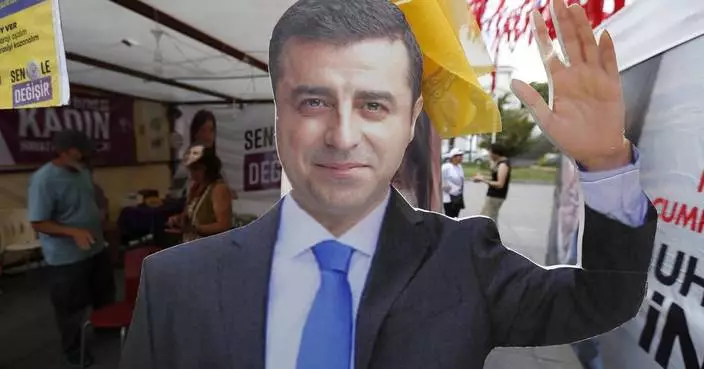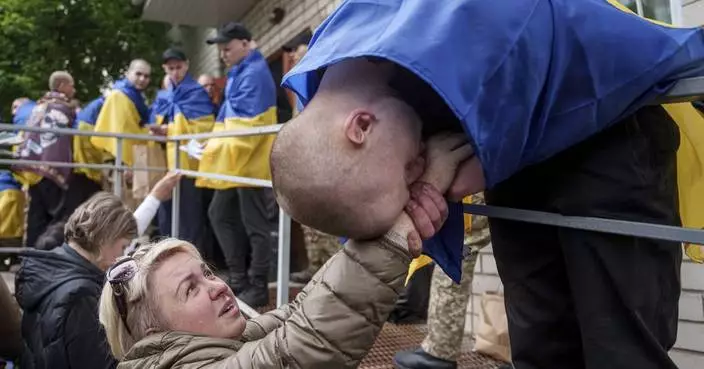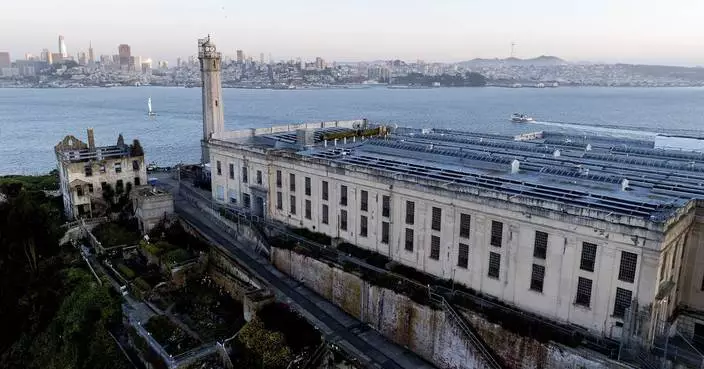A South Korean court on Friday sentenced former South Korean President Park Geun-hye to an additional eight years for abusing state funds and violating election laws.
She now faces the prospect of more than three decades behind bars. She's already serving a 24-year prison term over a massive corruption scandal that led to her removal from office last year.
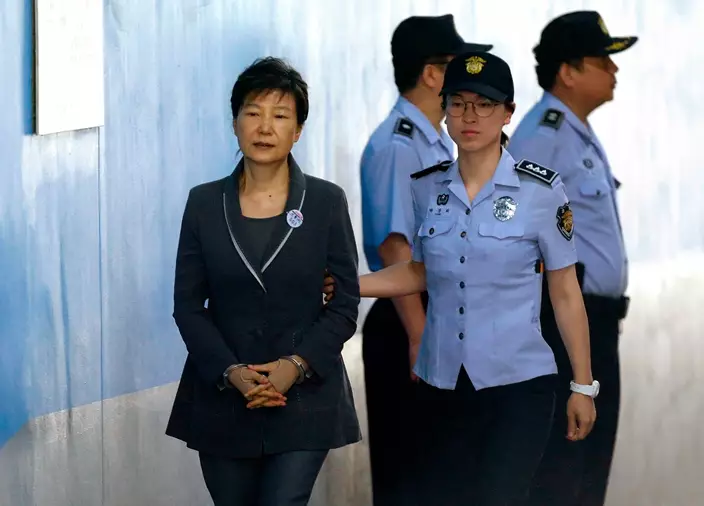
In this Aug. 7, 2017, file photo, former South Korean President Park Geun-hye, left, arrives for her trial at the Seoul Central District Court in Seoul. (AP Photo/Ahn Young-joon, File)
Seoul Central District Court on Friday found her guilty of causing substantial losses to state coffers by unlawfully receiving about 3 billion won ($2.6 million) from chiefs of the National Intelligence Service during her presidency and sentenced her to six years in prison.
However, she was found not guilty of bribery charges related to the money transfers. The court said it was unclear whether the spy chiefs sought or received favors in return.
The court separately sentenced Park to two years in prison for breaking election laws by meddling in her party candidate's nomination while attempting to win more spots for her loyalists ahead of the parliamentary elections in 2016.
She didn't appear in court.
Park's conservative party failed to gain a majority in the National Assembly after the parliamentary vote in April 2016. Analysts then said voters were frustrated over what they saw as Park's heavy-handed and uncompromising leadership style and inability to tolerate dissent within her party, which triggered rifts between her loyalists and reformists.
The party's defeat loomed large months later in December when an opposition-controlled parliament suspended Park's powers by passing a bill on her impeachment. Millions of protesters had poured onto the streets calling for Park's ouster amid allegations that she colluded with a longtime confidant to take tens of millions of dollars from companies in bribes and extortion and allowed the friend to secretly manipulate state affairs. The court convicted Park on most of these charges when it sentenced her to 24 years in prison in April.
The ruling marked a stunning fall from grace for the country's first female leader who won the 2012 presidential election by more than a million votes. Park enjoyed overwhelming support from conservatives who remember her father, staunch anti-communist dictator Park Chung-hee, as a hero whose aggressive industrial policies lifted the nation from the devastation of the 1950-53 Korean War and rescued millions from poverty. Critics see the elder Park as a brutal dictator who tortured and executed dissidents.
While Park's prison term currently adds up to 32 years, this could change, and potentially get even longer, depending on rulings of appeals courts. Prosecutors appealed Park's 24-year term on charges including bribery and abuse of state power and are now demanding 30 years in prison. The Seoul High Court will rule on the case on Aug. 24.
Following her impeachment, Park was formally removed from office following a ruling by the country's Constitutional Court in March last year and was arrested weeks later.
LOS ANGELES (AP) — Authorities said Tuesday that a man who attacked rapper Tory Lanez in a California prison is an inmate serving a life sentence for second-degree murder who was previously convicted for an in-prison assault with a deadly weapon.
Lanez was in fair condition a day after the attack in a housing unit at the California Correctional Institution in Tehachapi, where he’s serving a 10-year sentence for shooting hip-hop star Megan Thee Stallion in the feet, Pedro Calderon Michel, spokesman for the state Department of Corrections and Rehabilitation, said in an email.
Authorities did not specify how Lanez was attacked, but a message posted on the rapper’s Instagram account Monday evening said Lanez was stabbed 14 times and both his lungs collapsed.
Prison officials identified the alleged attacker as Santino Casio, 42. He has been put in restricted housing pending an investigation by the prison and the Kern County District Attorney’s Office.
Casio has been in the facility since 2004, after he was sentenced to life, with parole possible, for convictions of second-degree murder and first-degree attempted murder. In 2008, he was sentenced to six more years for assault by a prisoner with a deadly weapon, and in 2018 he was sentenced to two more years for possession and manufacture of a deadly weapon by a prisoner.
An email seeking comment sent to an attorney who previously represented Casio was not immediately answered.
The prison is about 100 miles (160 kilometers) north of Los Angeles in the mountains of the Mojave Desert and houses about 1,700 medium- and maximum-security inmates.
In December 2022, Lanez was convicted of three felonies: assault with a semiautomatic firearm; having a loaded, unregistered firearm in a vehicle and discharging a firearm with gross negligence.
Megan, whose legal name is Megan Pete, testified during the trial that in July 2020, after they left a party at Kylie Jenner’s Hollywood Hills home, Lanez fired the gun at the back of her feet and shouted for her to dance as she walked away from an SUV in which they had been riding.
She had bullet fragments in both feet that had to be surgically removed. It wasn’t until months after the incident that she publicly identified Lanez as the person who had fired the gun.
A judge rejected a motion for a new trial from Lanez’s lawyers, who are appealing his conviction. They had no immediate comment after the attack.
Megan recently alleged that Lanez was harassing her from prison through surrogates, and in January a judge issued a protective order through 2030 ordering him to stop any such harassment or any other contact.
The 32-year-old Canadian Lanez began releasing mixtapes in 2009 and saw a steady rise in popularity, moving on to major label albums, two of which reached the top 10 on Billboard’s charts.
The Monday Instagram post on Lanez’s status said he was “talking normally, in good spirits, and deeply thankful to God that he is pulling through."
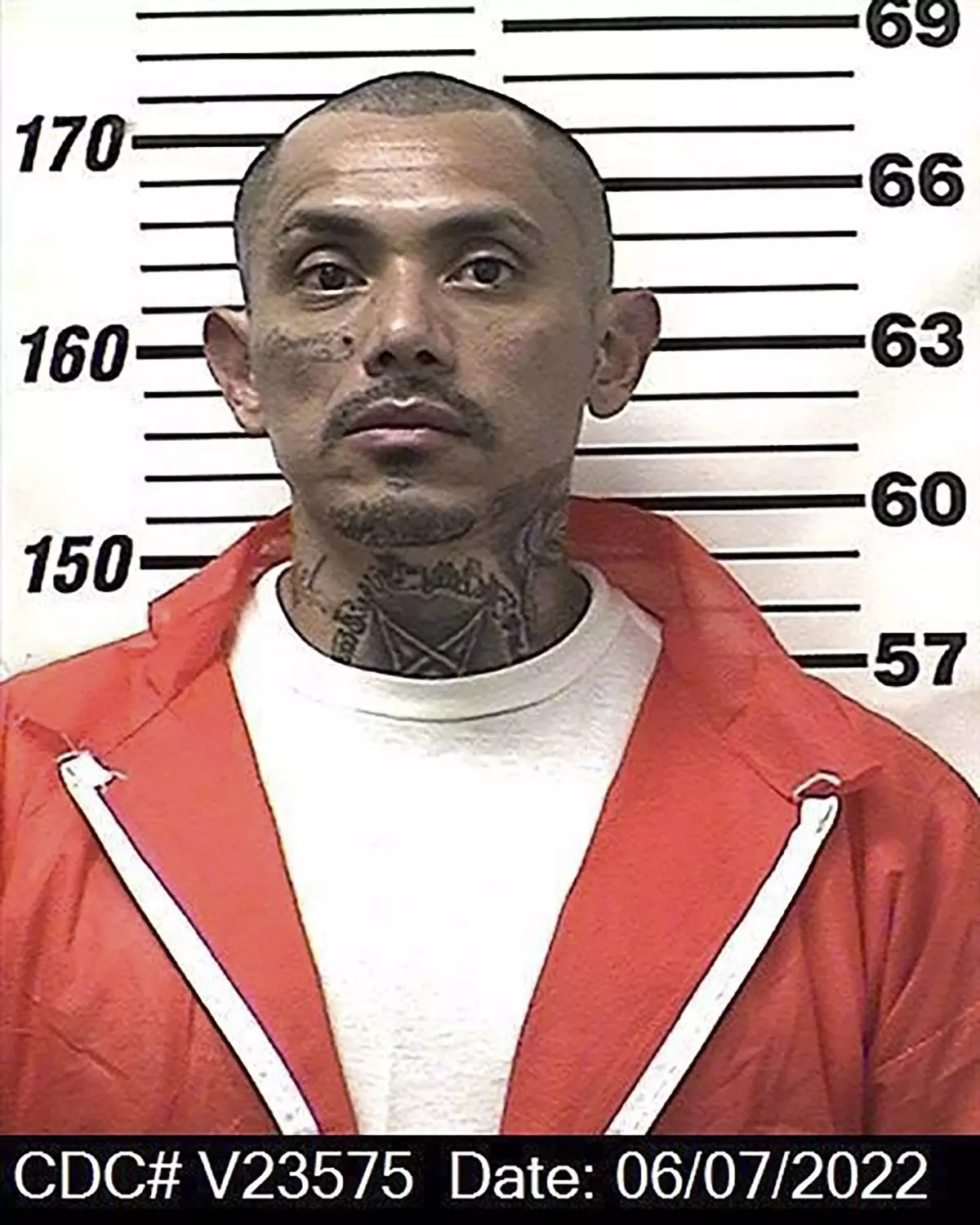
This June 7, 2022 photo provided by the California Department of Corrections shows inmate Santino Casio, 42, who is serving a life sentence for second-degree murder who was previously convicted for an in-prison assault with a deadly weapon. (California Department of Corrections via AP)

FILE - Singer Tory Lanez returns to the Clara Shortridge Foltz Criminal Justice Center for his trial, Dec. 13, 2022, in Los Angeles. (AP Photo/Damian Dovarganes, File)

FILE - Rapper Tory Lanez performs at HOT 97 Summer Jam 2018 at MetLife Stadium in East Rutherford, N.J., on June 10, 2018. (Photo by Scott Roth/Invision/AP, File)









